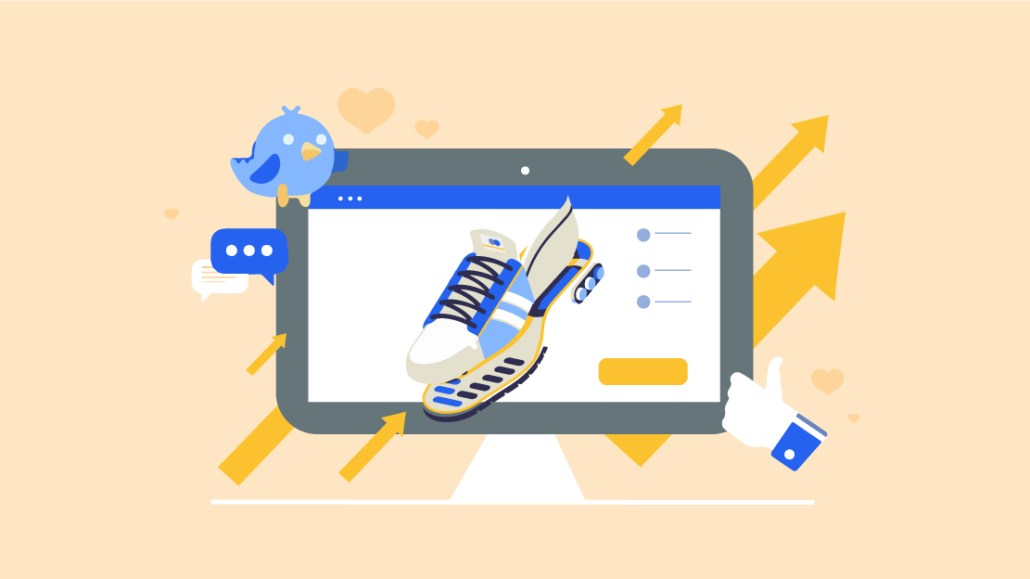Secure your place at the Digiday Media Buying Summit in Nashville, March 2-4

By Stefen Lovelace, account director, sports, imre
Athletes are much more than the feats we see them display on the field. In today’s hyper-connected world, athletes are their own brands, and the forward-thinking ones see the opportunity early to build a brand through their endorsements, interviews and perhaps most potently, their large social media followings.
When done correctly, an athlete can use their social presence to become an icon both on and off the field. Take LeBron James for example: James not only uses his channels to show his workouts, speak directly to fans and give an inside look at his personal life, but also uses them to speak on social issues and raise further awareness and action for causes.
During the NBA finals he posted videos of different young people with experience in business, social justice or philanthropy, celebrating their stories and inspiring others to follow similar paths. We can debate LeBron vs. M.J. on court supremacy for days, however debating their off-the-court activism is no contest.
Established athletes like James realized early on the importance of social media, while other stars who know how to work an interview room are leveraging their famous social channels for additional business opportunities. Richard Sherman, a well-known Twitter debater has been one of the NFL’s most outspoken athletes for years. Now he’s using that massive follower base to spread awareness around a new business he’s passionate about — building a new daily fantasy model and actually getting a cut of the billions made in the game.
But with every athlete social media success story, there are plenty of #fails that put these sports stars in the limelight for the wrong reasons, like Kevin Durant. Durant is one of the best NBA players on the planet, but those skills don’t translate to his social media channels. After building a reputation for continuously engaging with online trolls, it might be wise for Durant to turn the at-reply notifications off for a while.
Meanwhile, several athletes most likely do not have social media managers keeping an eye on their accounts, considering that in just this year alone, several have been found to have racist, offensive tweets from their past. It would be wise for all young athletes to take a long look at all past social media posts and take down the ones that could get them in trouble — or perhaps just not be racist, sexist, homophobic, or a generally bad person. That would work too.
Here is our playbook for athlete brand-building through social:
Be authentic
While social media is a great way to attract new endorsements and sponsors, it’s important not to forget the purpose of these channels — to show who you are. Joel Embiid is among one of the most authentic athletes on Twitter. He’s up for a shoe contract, and because of his unique personality both on-and-off the court, there’s speculation that this contract could be one of the biggest ones in the league.
Don’t shut up and dribble
Don’t be afraid to speak about issues that are important to you. James has been vocal in speaking up about major societal issues. That ongoing commitment has helped land him a new HBO show where he speaks about issues with major athletes, comedians and celebrities.
Be responsive, not reactionary
Yes, you should interact with fans when they have questions and allow them a look at your personal side. No, you shouldn’t get in public spats with trolls. And make sure you have someone looking back at the content you’ve already put out — it’s hard to build a brand if you’ve already ruined it before you make it big.
And on the business side, it’s critical for brands to ensure that they’re selecting the right athlete to wear their logo. You want an athlete that will connect with your audience, has a personality that your fans will be attracted to and ultimately knows how to effectively move product. AAA has done this well with its sponsorship of Austin Dillon. As a young NASCAR driver, Dillon attracts the younger demo that the brand is looking to cultivate while his profession connects seamlessly with their current services.
Consider it a slam dunk if the athlete actually uses your product, as it’ll make them more authentic when promoting your brand. Shaquille O’Neal’s partnership with Ring is a prime example of this — he bought the product, loved it and reached out to the CEO himself in an effort to get himself involved.
Overall, there’s nothing more important than authenticity when it comes to successful social marketing for athletes, whether in the form of voice, endorsement or ideally, both.
More from Digiday

From feeds to streets: How mega influencer Haley Baylee is diversifying beyond platform algorithms
Kalil is partnering with LinkNYC to take her social media content into the real world and the streets of NYC.

‘A brand trip’: How the creator economy showed up at this year’s Super Bowl
Super Bowl 2026 had more on-the-ground brand activations and creator participation than ever, showcasing how it’s become a massive IRL moment for the creator economy.

Future of Marketing Briefing: AI’s branding problem is why marketers keep it off the label
The reputational downside is clearer than the branding upside, which makes discretion the safer strategy.





